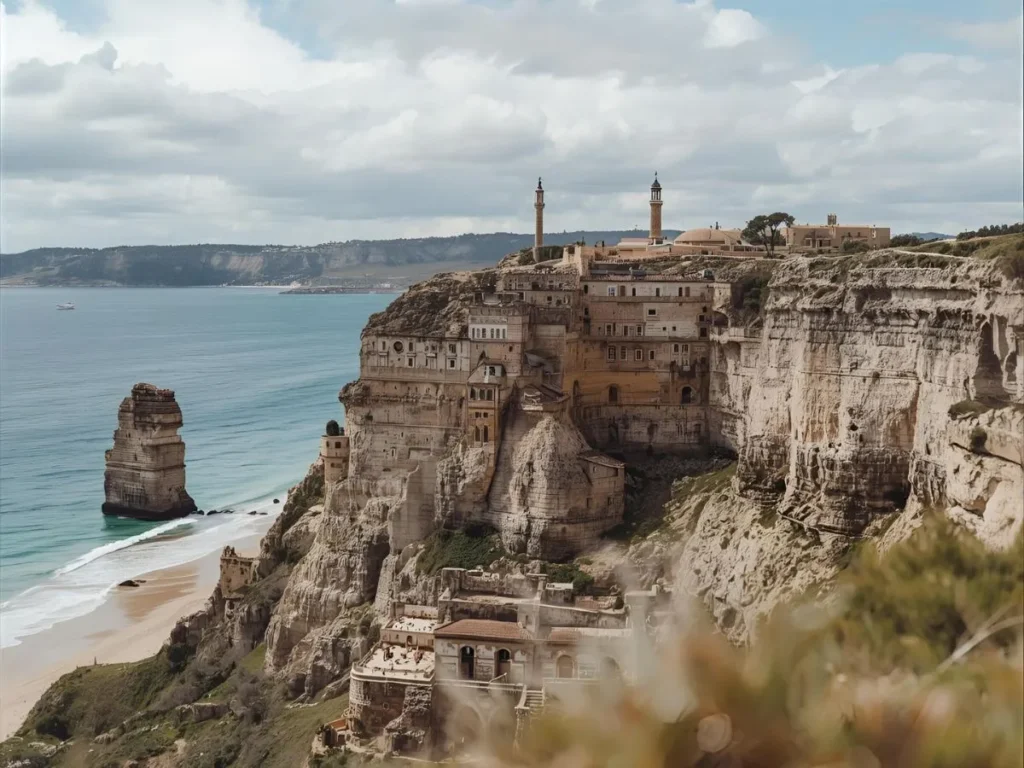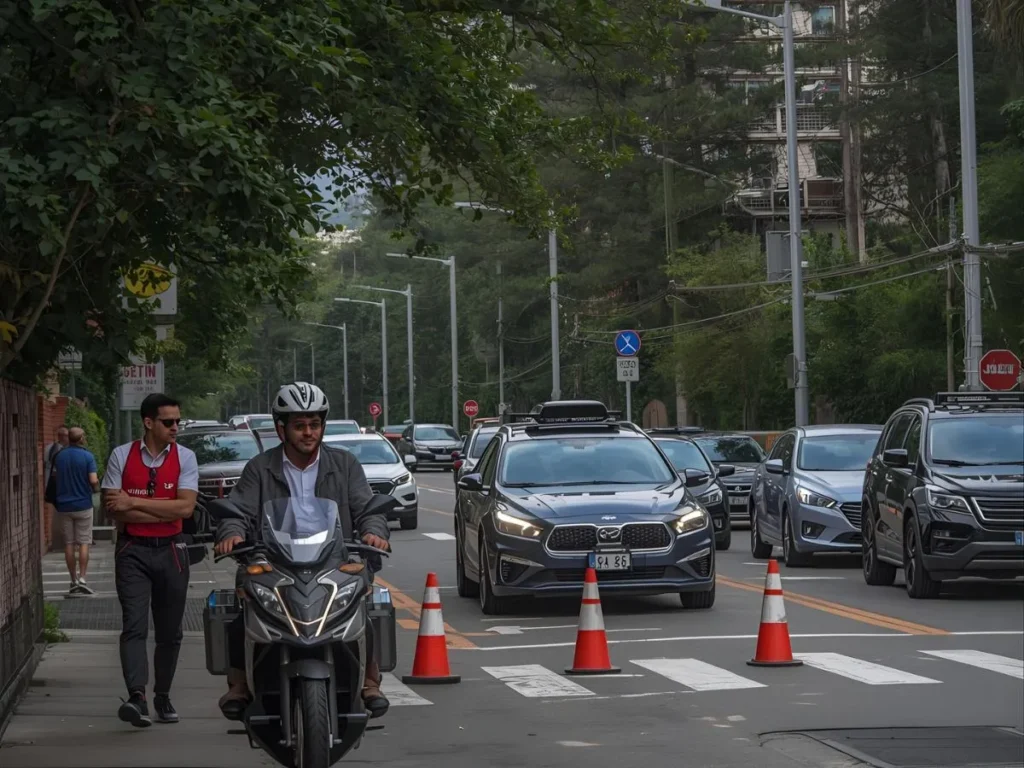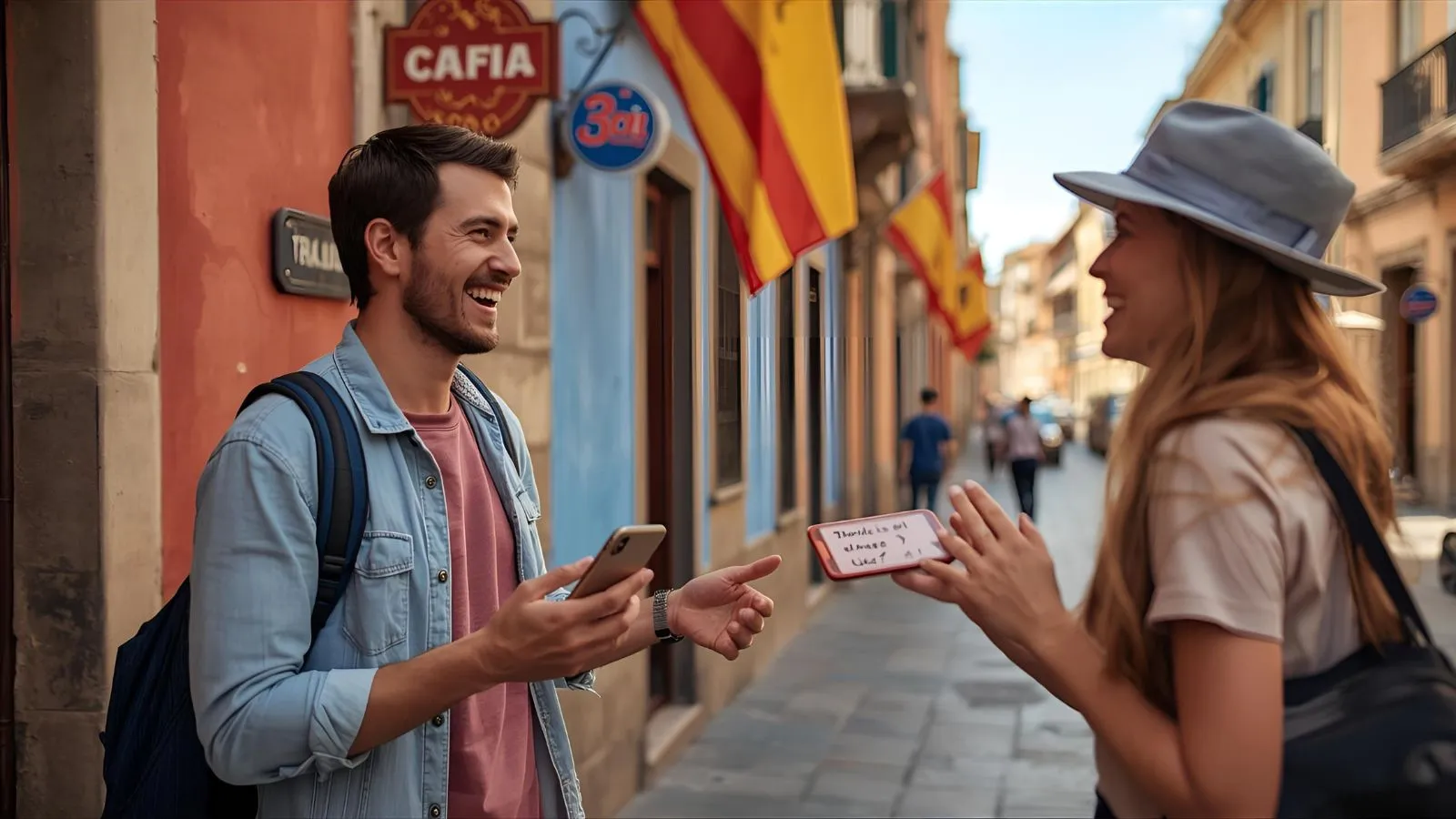Imagine landing in sunny Spain or exploring the vibrant streets of Mexico. The music, food, and energy are amazing but then you realize you can’t ask for directions, order food, or greet locals without awkward hand gestures! That’s where helpful Spanish phrases for travel come to the rescue.
Knowing even a few key phrases can turn your trip from stressful to smooth. You’ll connect better with locals, avoid confusion, and feel more confident navigating new places.
In this guide, we’ll cover practical and easy-to-learn Spanish expressions you can use in real-life travel situations.
✈️ Why Helpful Spanish Phrases for Travel Matter

When traveling to Spanish-speaking countries—like Spain, Mexico, or Colombia English isn’t always widely spoken, especially outside tourist areas. Using helpful Spanish phrases for travel shows respect for the local culture and helps you navigate daily life with ease.
So, let’s dive into the essential categories of helpful Spanish phrases for travel you’ll want to memorize before your next trip!
👋 Basic Greetings and Polite Expressions
Starting a conversation with kindness goes a long way. These greetings and polite expressions help you make a great first impression wherever you go.
Hola – Hello
Use When: Greeting anyone at any time of day.
Example: Hola, ¿cómo estás? (Hello, how are you?)
Buenos días / Buenas tardes / Buenas noches – Good morning / afternoon / night
Use When: Depending on the time of day to greet politely.
Example: Buenas tardes, señor. ¿Cómo está? (Good afternoon, sir. How are you?)
Por favor – Please
Use When: Asking for anything politely.
Example: Una botella de agua, por favor. (A bottle of water, please.)
Gracias / Muchas gracias – Thank you / Thanks a lot
Use When: Showing gratitude for help or service.
Example: Muchas gracias por tu ayuda. (Thanks a lot for your help.)
De nada – You’re welcome
Use When: Responding to someone’s thanks.
Example: —Gracias. —De nada. (—Thanks. —You’re welcome.)
🍽️ Eating Out and Ordering Food

Dining in another country is one of the best travel experiences. These helpful Spanish phrases for travel make it easy to enjoy meals without confusion.
La carta, por favor – The menu, please
Use When: You’re ready to see the food options.
Example: ¿Me puede traer la carta, por favor? (Can you bring me the menu, please?)
Quisiera… / Me gustaría… – I would like…
Use When: Ordering food or drinks politely.
Example: Quisiera una paella y una copa de vino tinto. (I would like a paella and a glass of red wine.)
¿Cuánto cuesta? – How much does it cost?
Use When: Asking about prices before ordering.
Example: ¿Cuánto cuesta el plato del día? (How much is the dish of the day?)
Está delicioso / muy rico – It’s delicious / very tasty
Use When: Complimenting food at a restaurant.
Example: El postre está delicioso. (The dessert is delicious.)
La cuenta, por favor – The bill, please
Use When: Asking to pay.
Example: ¿Me trae la cuenta, por favor? (Can you bring me the bill, please?)
🏨 At the Hotel or Accommodation
Checking in or asking for assistance is easy when you know a few key phrases.
Tengo una reserva – I have a reservation
Use When: Arriving at your hotel.
Example: Hola, tengo una reserva a nombre de Sara López. (Hello, I have a reservation under the name Sara López.)
¿A qué hora es el desayuno? – What time is breakfast?
Use When: Checking hotel amenities.
Example: ¿A qué hora es el desayuno mañana? (What time is breakfast tomorrow?)
¿Puedo tener otra toalla, por favor? – Can I have another towel, please?
Use When: Requesting items from housekeeping.
Example: ¿Puedo tener otra toalla, por favor? (Can I have another towel, please?)
No funciona el aire acondicionado – The air conditioner doesn’t work
Use When: Reporting an issue.
Example: Perdón, no funciona el aire acondicionado en mi habitación. (Excuse me, the air conditioner in my room doesn’t work.)
🚕 Getting Around

When you’re catching a taxi, bus, or train, these travel phrases in Spanish will help you move around easily.
¿Dónde está la estación de tren? – Where is the train station?
Use When: Asking for directions.
Example: Perdón, ¿dónde está la estación de tren más cercana? (Excuse me, where is the nearest train station?)
Quiero ir a… – I want to go to…
Use When: Telling a taxi driver your destination.
Example: Quiero ir al aeropuerto. (I want to go to the airport.)
¿Cuánto cuesta el boleto? – How much is the ticket?
Use When: Buying bus or train tickets.
Example: ¿Cuánto cuesta el boleto a Barcelona? (How much is the ticket to Barcelona?)
Pare aquí, por favor – Stop here, please
Use When: Getting off a taxi or bus.
Example: Pare aquí, por favor. (Stop here, please.)
🗺️ Asking for Directions
Lost? Don’t worry! These helpful Spanish phrases for travel make finding your way much easier.
¿Dónde está…? – Where is…?
Use When: Looking for landmarks or services.
Example: ¿Dónde está el baño? (Where is the bathroom?)
¿Está lejos? – Is it far?
Use When: Checking how far a place is.
Example: ¿Está lejos la playa? (Is the beach far?)
A la derecha / A la izquierda / Todo recto – Right / Left / Straight ahead
Use When: Following directions.
Example: Gire a la derecha y luego todo recto. (Turn right and then straight ahead.)
Gracias por su ayuda – Thank you for your help
Use When: After receiving directions.
Example: Gracias por su ayuda, muy amable. (Thank you for your help, very kind of you.)
🛍️ Shopping and Markets
Shopping in local markets is part of the adventure! Use these Spanish phrases to make the most of it.
¿Cuánto cuesta esto? – How much is this?
Use When: Asking for the price.
Example: ¿Cuánto cuesta este sombrero? (How much is this hat?)
¿Tiene otro color / talla? – Do you have another color / size?
Use When: Looking for variety.
Example: ¿Tiene esta camiseta en azul? (Do you have this shirt in blue?)
Es muy caro – It’s too expensive
Use When: Negotiating prices politely.
Example: Lo siento, es muy caro para mí. (Sorry, it’s too expensive for me.)
¿Me puede hacer un descuento? – Can you give me a discount?
Use When: Bargaining kindly.
Example: ¿Me puede hacer un descuento si compro dos? (Can you give me a discount if I buy two?)
🚑 Emergencies and Safety
Even on the best trips, emergencies can happen. These helpful Spanish phrases for travel could be lifesavers.
¡Ayuda! / ¡Socorro! – Help!
Use When: In urgent or dangerous situations.
Example: ¡Ayuda! Mi amigo está herido. (Help! My friend is hurt.)
Necesito un médico – I need a doctor
Use When: You or someone feels unwell.
Example: Necesito un médico, por favor. (I need a doctor, please.)
Llame a la policía – Call the police
Use When: Reporting a theft or serious issue.
Example: Por favor, llame a la policía. (Please, call the police.)
He perdido mi pasaporte – I’ve lost my passport
Use When: At the embassy or hotel.
Example: He perdido mi pasaporte, necesito ayuda. (I’ve lost my passport, I need help.)
💬 Bonus Recap Table
| Category | Spanish Phrase | English Meaning | Use When |
|---|---|---|---|
| Greetings | Hola | Hello | Meeting anyone |
| Food | La cuenta, por favor | The bill, please | Paying at a restaurant |
| Hotel | Tengo una reserva | I have a reservation | Checking in |
| Directions | ¿Dónde está…? | Where is…? | Finding locations |
| Transport | Quiero ir a… | I want to go to… | Telling taxi driver |
| Shopping | ¿Cuánto cuesta esto? | How much is this? | Asking for price |
| Emergency | ¡Ayuda! | Help! | In urgent situations |
🌟 Final Thoughts
Traveling is about adventure, culture, and connection. Knowing helpful Spanish phrases for travel doesn’t mean you have to be fluent it just means you care enough to communicate.
These simple words can open doors, create friendships, and make your journey more enjoyable and respectful.
Before your next trip, practice a few of these phrases daily.


Leave a Reply